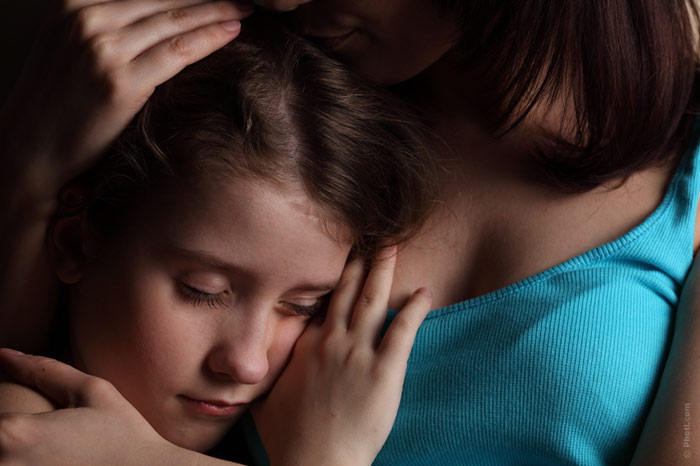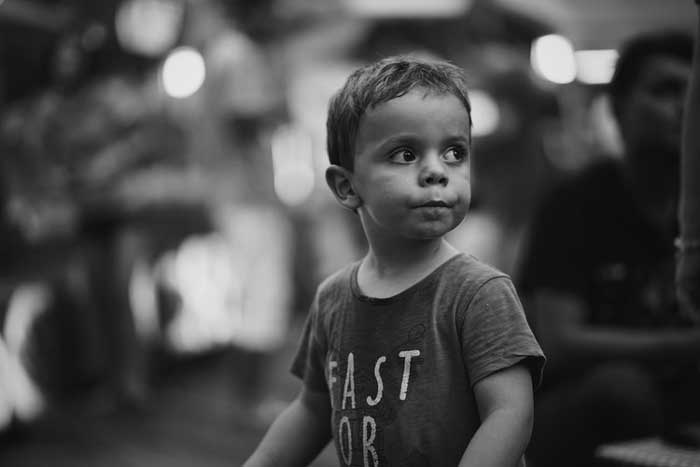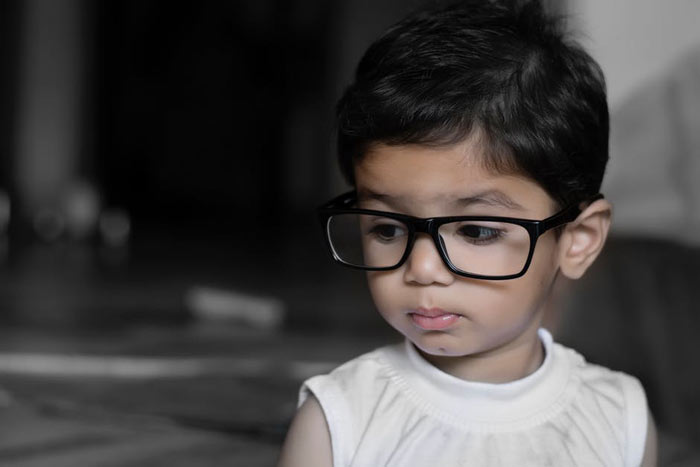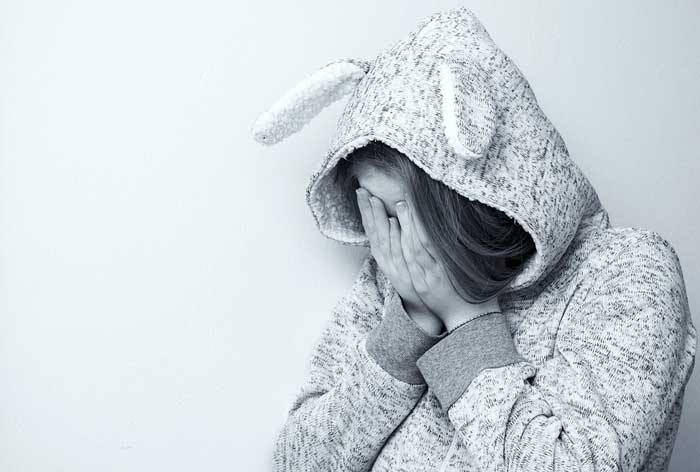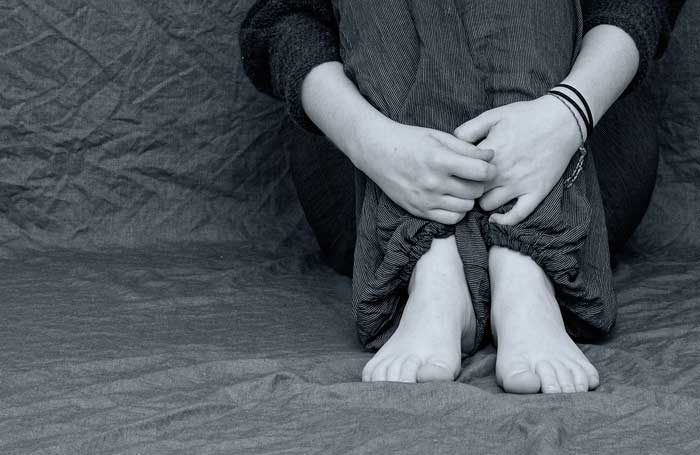Signs and Symptoms of Childhood Depression
Depression doesn’t spare children. Considering the US, 3% and more of kids and up to 10% of teenagers struggle with depressive conditions. With boys depression mostly sets in before they turn 10, but as kids go on growing, reaching the age 16, it is girls who fall prey to bouts of depression.
Considering bipolar disorder, it can be quite severe when occurring in kids, although it is more often met in teenagers and not in preteen children. Then again, it might be accompanied by, and partly disguised by, attention deficit hyperactivity disorder (ADHD), obsessive-compulsive disorder (OCD), or conduct disorder (CD).
Generally, depression might set in quite early, when you least expect it. The most common age is after 14 – 15, but it can afflict a child when he or she is still unable to express their feelings in words; so it’s up to parents to recognize the characteristic symptoms.
School grades drop dramatically
Once depressed, the schoolchild finds it hard to maintain concentration, which results in an inability to heed the teacher’s explanations or attend to their home assignments properly. Should a bright student show an unexplainable decrease in grades, naturally, people around get interested in the reason behind it. More often the main complaint is not heavy heart, but inability to focus. Their minds begin to slip, so they can’t take in material and have to go over it time after time.
The child is beset by the sense of worhtlessness or guilt
If you hear your child saying that they are pathetic and worthless, or that there is no-one to like them, look into the matter. You may need to call in a psychologist who could manage to divert the child’s mind from unnecessary pessimism. Stepping away from depression-induced mindframe into a more lucid outlook on life would be making great progress.
If depressed, children feel their way of thinking, behavior and mood change radically. It is only natural for them to disbelieve that the situation will ever get better. If they are deep into the feeling of worthlessness, they may contemplate suicide.
Once you feel your kid’s thoughts turn towards injuring themselves or cutting their life short, you shouldn’t take it lightly. It may mean the child uses these expressions to describe their aggravated feelings – so no matter whether they are in earnest about committing suicide, they are in need of emotional help.
The child is given to crying a lot
For a child crying is one of the habitual ways to share their emotions; yet if your child has suddenly grew to cry so much as he or she never cried before, something must have caused this change. Follow your nose and see whether things are going fine.
The child refuses offers of comfort
We all feel down now and again, the more so if we got mistreated by life; if it happens, people seek support to live it down more easily. Whereas a kid laboring under depression, being aware that his sadness won’t go, shies off from any attempt to comfort.
The child grows indifferent to everything
When your child suddenly gets off basketball where you enrolled him, it is one of those things, and it’s not about depression. When depression sets in, the child loses interest in everything, in all big things like studying and playing with friends. The condition dampens everything good that is in life.
The kid’s eating habits change radically
Depression could result in an abrupt change in eating; children may stop eating altogether or, on the contrary, lean heavily on some particular food like something sugary. Of course, children are apt to change their attitude to food now and then, it is one of the natural stages of growing, but if the shift is radical, it could be a symptom of depression. Or again, it may shift from not wanting to eat at all to devouring lots of food.
The child shies away from entertainments
Although we think of children as little people, they have enough stressful situations – at school, in sport, with friends, at different performances and contests. At any time the kid can be put down inadvertently. He or she ought to have ways to relieve stress that work – so if they work no more, take heed.
Generally people arrange get-togethers and go away for a while to shake off stress; people struggling with depression are apt to disregard such things, because they realize they are not up to socializing properly. So they turn down such suggestions flatly.
The kid wakes up from sleep tired
Young ones need a lot of sleep, so a brusque change of sleeping mode can also signify depression. Once again, it can work both ways, either sending the poor kid to sleep all afternoon long, or making him or her wake up in the middle of the night feeling unable to sleep any more.
That means sleep doesn’t bring the expected relaxation – however long they sleep, they get no relief and wake up worn out. Of course this state affects their academic and sport performance as well as socializing. Kids either complain of fatigue, or, if they fail to, they are obviously slack. They are often late, neglect their homework, and wreak havoc with their lives in general.
They grow tense when addressed
With adults the onset of depression is marked with a characteristic stamp of low spirits, but children can react by displaying angst – which is a natural reaction in youths. They may not appear downcast or dejected, but irritable and overreacting. Whereas mood swings are cyclic and predictable, so you know that you will have a brighter kid when they have rested, depression keeps them invariably on the edge, answering back huffily.
Happy memories fail to evince bright reaction
Distinction should be made between children who are depressed and who are naturally inclined to moodiness. If you are not sure which it is, try getting them into a happy memories mode. An unhappy preteen or teen will be only too glad to revisit the happy hours of his life, but a depressed one won’t. They are far ore likely to grow yet more irritated, stating that those days were gone. Likewise, a child with depression doesn’t believe in happiness in future.
What Are the Depressive Factors for Children?
Situations that can bring on juvenile depression are as follows:
- trouble in the family
- bullying
- any kind of abuse, including emotional
- depression or similar issues coming down in the family
A single traumatic event can result in depression, if strong enough emotionally – a death or a divorce in the family, serious conflicts at school with teachers or pals.
Sometimes difficult events overlap, pushing the child over the edge – especially those who are susceptible to depressive bouts.
If you detected depression in the child
Once you have strongly suspected depression, first of all talk to the child. Get him or her to tell you what has gone wrong and what makes them feel this way. While you may regard the problem as a trifling one, never show it and treat it as it were serious. The main thing is that the event, however small it might be, causes great disturbance.
Should the child refuse to converse, just tell them that you care for what is happening to them and they can always turn to you when they need support. Remind them that they can always talk to other people they trust, no matter who this person is – a friend or a relative.
It goes for you too – approach other trustworthy people who your kid may be open with, not forgetting the other parent. Visit the school and find out what the child’s teachers have to say.


